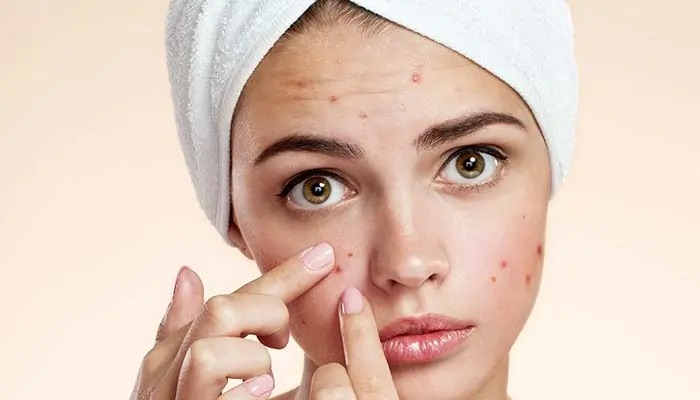Advertisement
Lifestyle Changes to Support Acne Treatment
In addition to using natural and chemical remedies, making certain lifestyle changes can help improve acne and overall skin health:
Maintain a Healthy Diet
- Avoid High-Glycemic Foods: Foods with a high glycemic index, such as sugary snacks and refined carbohydrates, can spike blood sugar levels and exacerbate acne.
- Include Anti-Inflammatory Foods: Foods rich in omega-3 fatty acids, antioxidants, and vitamins (such as fish, nuts, fruits, and vegetables) can help reduce inflammation and support skin health.
- Stay Hydrated: Drinking plenty of water helps flush out toxins and keeps your skin hydrated.
Practice Good Skincare Hygiene
- Cleanse Gently: Use a gentle cleanser to wash your face twice daily, and avoid scrubbing or using harsh products that can irritate the skin.
- Avoid Touching Your Face: Touching your face can transfer bacteria and oils from your hands to your skin, leading to break
outs.
- Use Non-Comedogenic Products: Choose skincare and makeup products labeled as non-comedogenic, meaning they do not clog pores.
Manage Stress
- Practice Relaxation Techniques: Activities such as yoga, meditation, and deep breathing exercises can help reduce stress and prevent acne flare-ups.
- Get Enough Sleep: Aim for 7-9 hours of sleep per night to support overall health and reduce stress.
Avoid Excessive Sun Exposure
- Use Sunscreen: Apply a broad-spectrum sunscreen with at least SPF 30 daily to protect your skin from UV damage.
- Wear Protective Clothing: Wear hats and protective clothing when spending extended periods outdoors.
Seek Professional Help
If over-the-counter treatments and lifestyle changes are not effective, consider seeking help from a dermatologist. They can provide personalized treatment plans and prescribe stronger medications if necessary.










